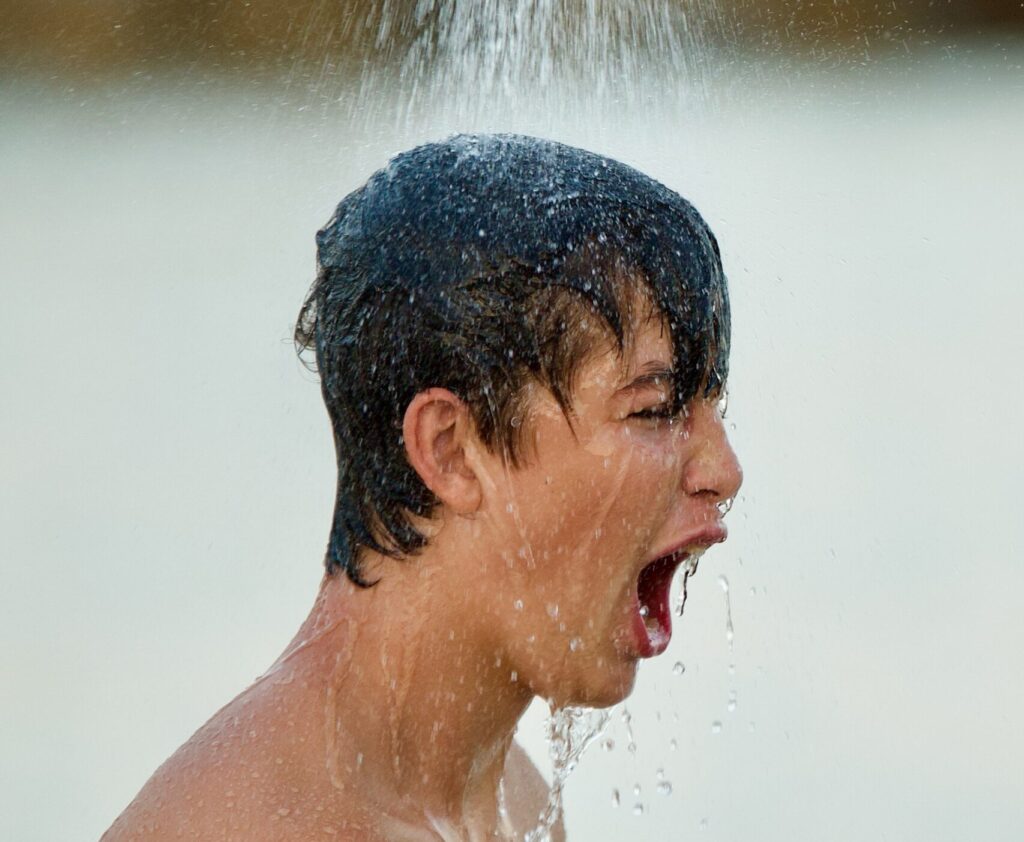Cold Shower Benefits: Enhancing Circulation and Energizing Your Day
Cold Shower Benefits: Enhancing Circulation and Energizing Your Day Introduction Amidst the routine of daily life, the thought of embracing a cold shower might seem unsettling. However, beyond the initial shock, the invigorating benefits of this practice are both remarkable and transformative. The essence of “Cold Shower Benefits: Enhancing Circulation and Energizing Your Day” lies in exploring the science, health benefits, techniques, and dispelling myths surrounding this rejuvenating ritual. Unveiling the potential to enhance circulation, elevate energy levels, and foster overall well-being, this article navigates through the icy waters to reveal the warming benefits that cold showers offer. The Science Behind Cold Showers Impact on Circulation Cold showers initiate a physiological response in the body known as vasoconstriction, causing blood vessels to contract. This constriction helps to conserve body heat and redirects blood flow from the skin’s surface to vital organs, maintaining core temperature. Subsequently, when the body is exposed to warmer temperatures, the blood vessels dilate, enhancing blood circulation and promoting efficient nutrient and oxygen transport throughout the body. Improved circulation aids in overall cardiovascular health and contributes to increased vitality. Boosting Energy Levels The shock of cold water triggers the body’s sympathetic nervous system, prompting the release of adrenaline. This surge of adrenaline increases heart rate, enhances oxygen intake, and provides a natural energy boost. Additionally, the rush of cold water stimulates deeper breathing, promoting oxygen flow and alertness, leaving one feeling invigorated and refreshed. This natural energy surge can be beneficial for jump-starting the day or as a revitalizing pick-me-up. Health Benefits of Cold Showers Improving Skin and Hair Health Cold water exposure can work wonders for your skin and hair. The lower temperature causes the skin’s pores to constrict, preventing dirt and grime from entering and reducing the risk of acne. It also tightens cuticles, resulting in healthier, shinier hair. Additionally, cold water aids in sealing the hair cuticle, reducing frizz and enhancing the natural shine of the hair, making it a simple yet effective beauty treatment. Strengthening the Immune System Cold water exposure acts as a mild stressor on the body, which in turn triggers an increase in the production of white blood cells. These cells play a crucial role in the body’s defense against illnesses and infections. Over time, regular cold showers can potentially enhance the body’s overall immunity, reducing the frequency of common illnesses like colds and flu. Mood Enhancement The shock of cold water activates the release of neurotransmitters like endorphins and noradrenaline. Endorphins act as natural mood elevators, inducing feelings of well-being and happiness. The increased release of noradrenaline helps combat stress, anxiety, and depression, promoting mental resilience and providing a refreshing, invigorating feeling after a cold shower. Cold showers offer a multitude of health benefits beyond mere physical refreshment. They play a role in fortifying skin and hair health, boosting the immune system, and contributing to mental well-being, making them a holistic addition to one’s daily routine. Taking Cold Showers: Techniques and Tips Gradual Temperature Changes Begin your shower with lukewarm water, gradually decreasing the temperature to cooler levels over time. Starting with warmer water helps the body acclimate, making the transition to cold water more tolerable. This gradual decrease in temperature also aids in preventing a shock to the system, making the experience more manageable and less daunting. Timing and Duration Cold water exposure need not be prolonged to yield benefits. A brief exposure, lasting around 2 to 3 minutes, at the conclusion of a regular shower is usually sufficient to experience the advantages of cold water therapy. However, the duration can vary depending on individual comfort levels and personal preference. Experimenting with the duration allows one to find the optimal time for maximum benefit without discomfort. Breathing Techniques Maintain slow, deep breathing during the cold water exposure. Controlled and deep breathing helps manage the initial shock of the cold water, keeping you relaxed and aiding in adapting to the temperature change. Focusing on your breath can help ease any initial discomfort and promotes a feeling of calmness during the experience. Post-Cold Shower Recovery After the cold shower, allow your body to warm up naturally. Pat yourself dry with a towel and let your body heat itself without any external aids. This natural warming process allows the body to regulate its temperature, providing a comforting feeling post-shower. Adopting these techniques and tips for taking cold showers can enhance the experience, making it more manageable and enjoyable, while still reaping the benefits of cold water therapy. Debunking Cold Shower Myths Clarifying Health Misconceptions Contrary to some beliefs, cold showers do not inherently cause colds or illnesses. In fact, cold water exposure, when taken sensibly, can boost the immune system and potentially reduce the likelihood of falling ill. While the shock of cold water may feel uncomfortable at first, it does not directly lead to sickness. Addressing Safety Concerns There’s a common misconception that cold showers are unsafe. However, for most individuals, brief exposure to cold water is generally safe and can even have health benefits. Those with specific health conditions, such as heart issues or circulatory problems, should consult a healthcare professional before starting cold water therapy to ensure it’s safe for them. Myth about Temperature Extremes Another misconception is that cold showers need to be uncomfortably frigid to yield benefits. While cold showers are beneficial, they do not need to be icy. The focus should be on the cooling effect of the water, not extreme coldness, and gradual adaptation to lower temperatures over time. Addressing these myths helps in understanding the true implications and potential benefits of cold showers, dispelling common misconceptions that might deter individuals from exploring this invigorating practice. Conclusion The therapeutic effects of cold showers extend far beyond a mere refreshment. They unlock a pathway to invigoration, aiding circulation, boosting energy, and promoting holistic well-being. By understanding the scientific basis, health advantages, best practices, and addressing common misconceptions, individuals can embark on a journey of embracing the revitalizing power of cold water therapy. FAQs

